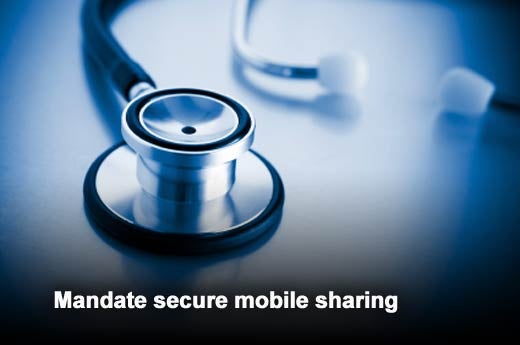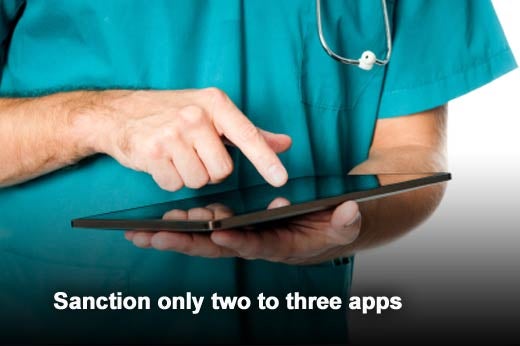Health care professionals and patients alike are enjoying the convenience of mobile medical apps to share information and accelerate care, but at what risk? While mobile apps make sharing and accessing information easy, they also make the information more susceptible to a breach.
Medical apps are becoming a fixture in the health care industry, predicted to grow to 500 million users by 2018 according to the FDA. The ease of use for professionals is undeniable, as are the security risks associated with PHI (personal health information) leaks. With millions of mobile hacks reported each year, it is imperative that health care organizations impose strict policies and guidelines for medical app use by their associates. Unregulated use of these apps can put organizations and care providers at risk of violating HIPAA regulations and exposing sensitive patient information.
Here are five tips for developing a secure medical mobile app policy, as identified by GlobalSCAPE, Inc., a provider of secure information exchange solutions.
Click through for five tips for developing a secure medical mobile app policy, as identified by GlobalSCAPE, Inc., a provider of secure information exchange solutions.
Require associates to access the app over secure company Wi-Fi, as opposed to their mobile data connection. For remote users, mandating the type of VPN connection avoids many risks before any data is even entered in the app. Utilizing a secure network increases protection against hacks, and allows enhanced internal monitoring.
Remain in control of where information lives by prohibiting apps that can access information offline. PHI should never be stored on a mobile device, and should only be accessible by the user and the app when a secure Internet connection is available. Strict encryption policies allow for more secure mobile file sharing.
Research what is available and what is most applicable to your organization. There are a slew of new apps developed each week, making it difficult to confirm the safety and reliability of each with every release and upgrade. Determine the most secure apps, and the ones that physicians prefer. Release an approved list of two or three apps for your organization to use. Hone in on compliance, updates, and new releases.
Free apps may function just as well as some apps that require a fee, but how do they do it? Advertisements. Including ads in a mobile app introduces another party to the transaction, and heightens the risk of hacks or data breaches. When you pay for an app, you are eliminating the need for third-party advertisers, thus eliminating a significant threat.
Open an exchange of information between associates and the IT department. Make associates aware of the risks in place if company policy is violated. App users should also highlight best and worst experiences, that may spark research into future best practices, or report new glitches not visible on the backend.
By implementing a well-structured, regulated mobile app policy, health care organizations can ensure the productivity of physicians without sacrificing the security of sensitive patient information.








